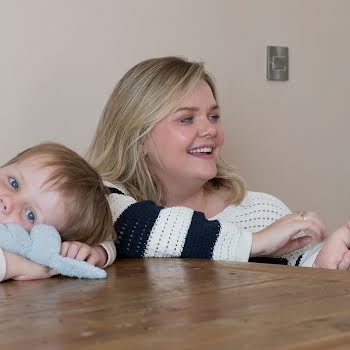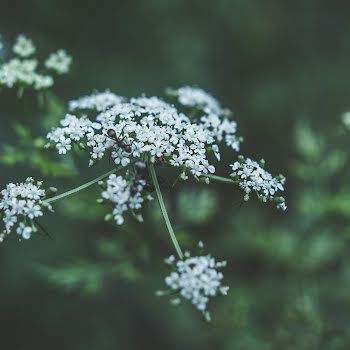
By Edaein OConnell
24th May 2022
24th May 2022
We chatted with Catherine O’ Keefe of The Wellness Warrior about the symptoms of perimenopause that often go undiscussed.
By now you know what the menopause is, right?
I was pretty sure I had a good grasp on what would be coming for me somewhere along the line. However, I couldn’t define exactly what would happen. From what I had heard and read, there would be hot flushes, pain and finally, your periods would stop.
When I asked Catherine O’ Keefe (aka The Wellness Warrior) to define it for me, she said: “Menopause itself is the anniversary of 12 months without a period. It’s 12 months without a period.”
However, before that point comes perimenopause. While the menopause is a major chapter in life, what comes before it is where serious issues can lie and is something which must be talked about.
Perimenopause begins several years before menopause. It is a transition period which can last between 4 to 12 years and is the time when the ovaries gradually begin to make less estrogen. It usually starts in a woman’s 40s but can start in her 30s or even earlier.
The symptoms can be highly debilitating and greatly interfere with a woman’s health, wellbeing and life.
Symptoms
Catherine is Ireland’s first perimenopause coach and is herself on the rollercoaster ride that is perimenopause. In her quest to feel better, she researched and experimented with ways that would optimise her general health and emotional wellbeing at a time when both can be at an all-time low.
Perimenopause has a total of 34 defined symptoms. These include hot flashes, breast tenderness, fatigue, lower sex drive, intense premenstrual syndrome and trouble sleeping. I was eager to ask Catherine about whether or not there were certain symptoms which women don’t know about or don’t talk about. Unsurprisingly, there were.
These are four major signs Catherine says could indicate perimenopause.
1. Changes in periods
“The periods will change. Now you might still be getting them every single month but what might happen is they might get heavier or the flow might change or you may have some clotting. For example, if your period usually lasted three days and then all of a sudden it is starting to last five days.”
2. Mental health
“Different things will happen and women get confused because they expect it to all be focused on the periods but it isn’t. I think the mental symptoms kick in sooner than a lot of the physical symptoms. I see a lot of women reacting to situations differently or being a bit more sensitive,” Catherine says. “Women don’t realise how gradual it is. All of a sudden they aren’t feeling as confident, they are in a meeting at work and are feeling uncomfortable. Maybe they are out with friends and don’t feel as relaxed. Socially, they are feeling a little more inside themselves.
“Anxiety is one of the toughest symptoms of perimenopause, particularly if you have not experienced it before.”
3. Vaginal Atrophy
On a blog post on the subject, Catherine defines vagina atrophy as: “The thinning, drying and inflammation of the vaginal walls that can occur during perimenopause/menopause as oestrogen reserves decline. Vaginal atrophy is also referred to as vaginal dryness and both refer to the same condition.”
Catherine believes this is one of the least talked about symptoms of perimenopause and is a “taboo within a taboo”.
“A doctor told me that vaginal atrophy affects one in two women over a certain age. The vaginal area becomes more sensitive. The symptoms include inflammation, a constant need to go to the toilet. It can feel like thrush. Bleeding is another symptom. It can start as bleeding after sex and can manifest in different ways.
“Vaginal atrophy is one of the symptoms of perimenopause that if you don’t do something about the issues, it will not get better; it will get worse.”
4. Incontinence
“Part of this could be ageing but another part of it is that you are losing your hormones in perimenopause,” says Catherine. “Losing hormones such as oestrogen and progesterone means your body is changing.”
Treatment options
When it comes to treatment choices, Catherine says there are two routes which women can journey on – HRT (Hormone Replacement Therapy) or complementary therapies. Catherine emphasises that it is completely your choice when it comes to what therapy you choose.
“We need to provide women with information about treatment options. For example, if HRT is for you, it is about understanding the different forms of HRT. There is an oral tablet, patches and gels etc. Then there are the complementary therapies such as herbalism which has a big part to play, as does reflexology and acupuncture.”
According to Catherine, lifestyle options are non-negotiable — diet and exercise, as part of a person’s overall lifestyle, must be reviewed.
She also says treatment will usually have to be tweaked until all symptoms are under control. “You have to continuously tweak it in both forms of therapy. In HRT, the dosage may have to be looked at.
Women have to be patient. Nothing will solve the problem overnight.”
Catherine affirms the first step is to meet with your GP to both investigate and assess symptoms and subsequently decide on a suitable treatment plan.
Visit The Wellness Warrior website for blog posts, information and more about Catherine and her work. Catherine was also involved in creating Ireland’s first menopause event, The M Word.
Read more: Perimenopause & Me: ‘The doctor said I might be depressed, but I knew I wasn’t’























